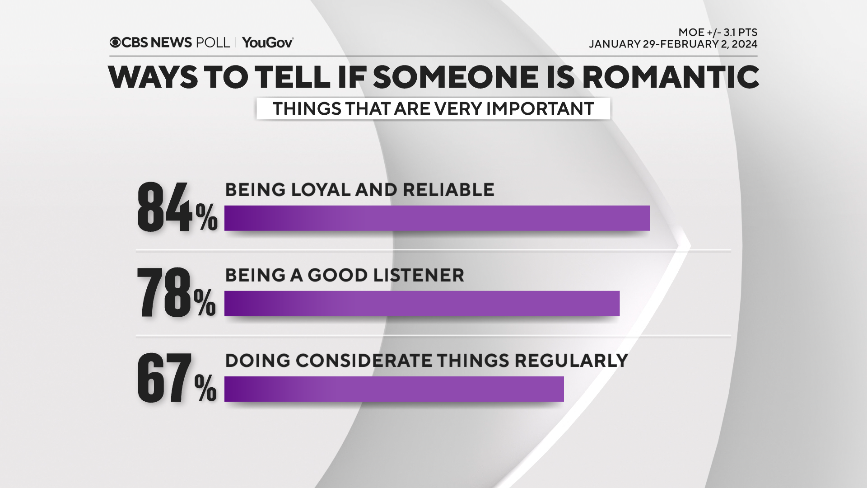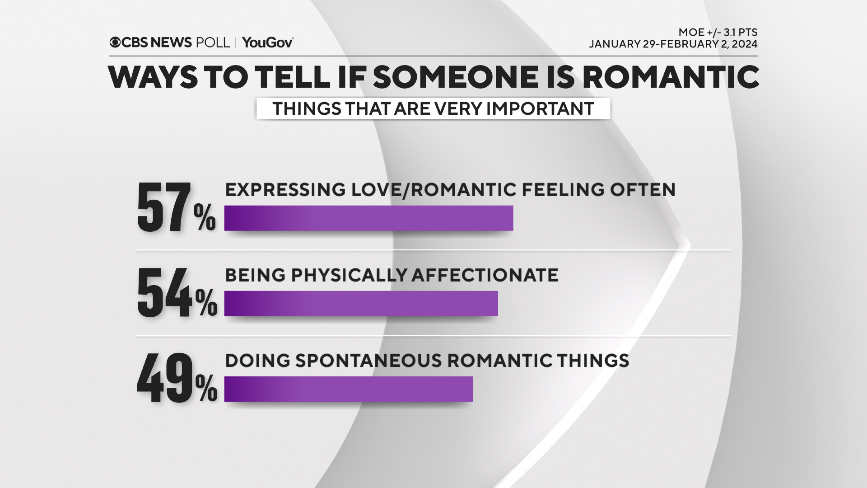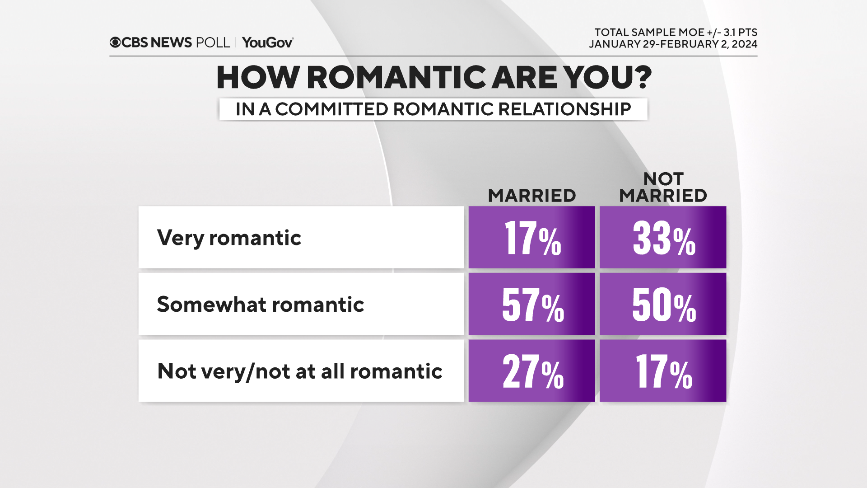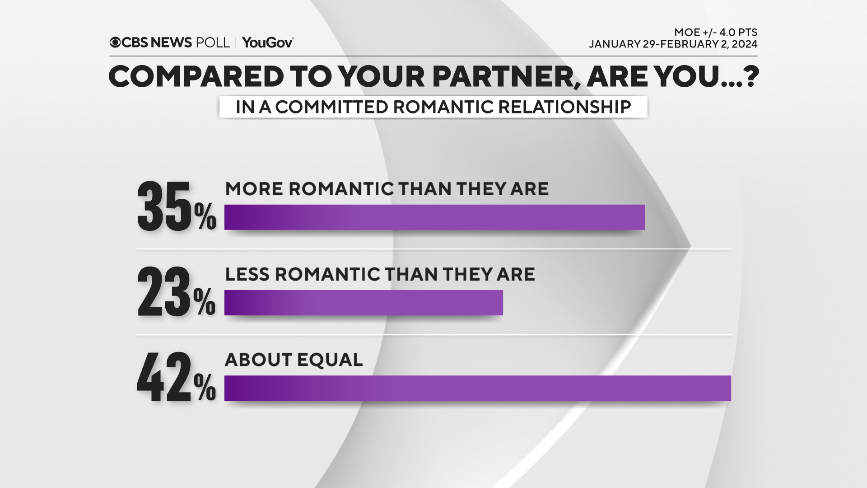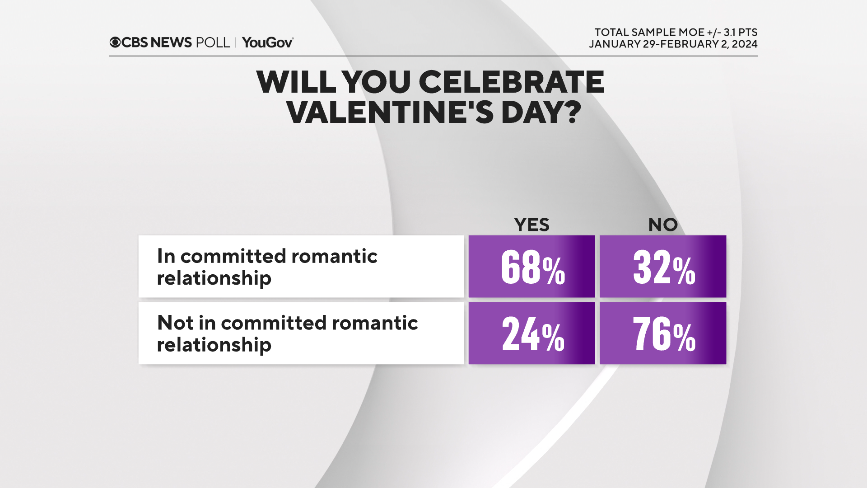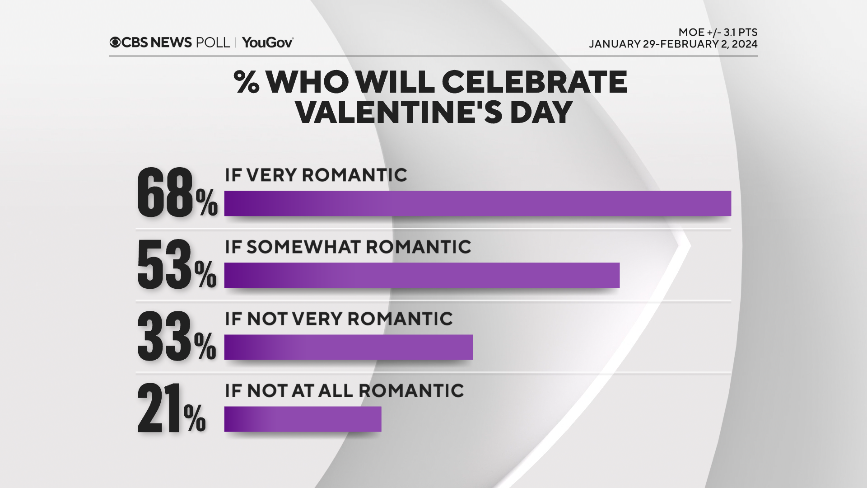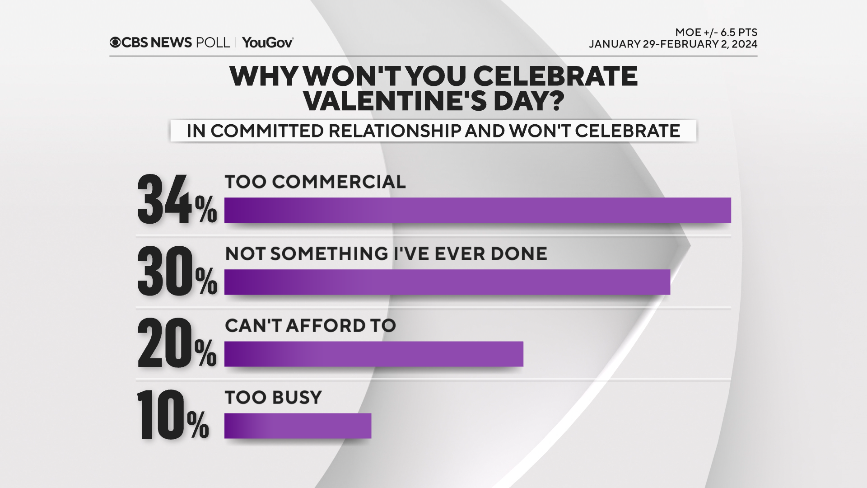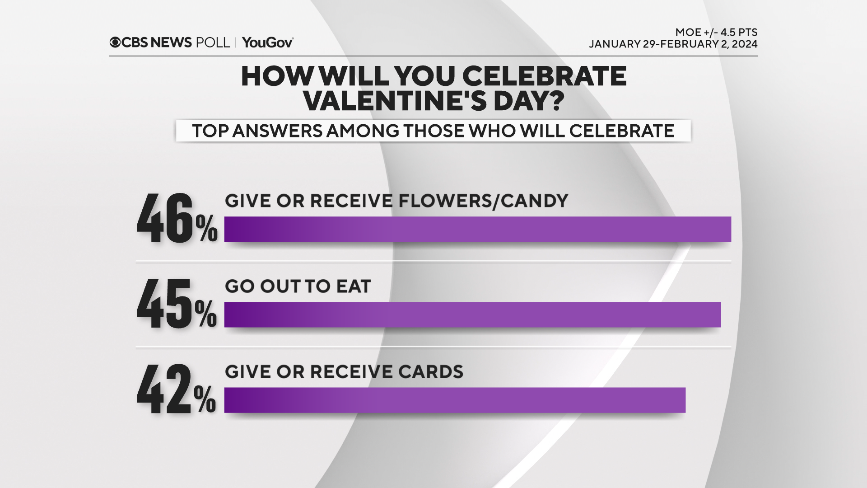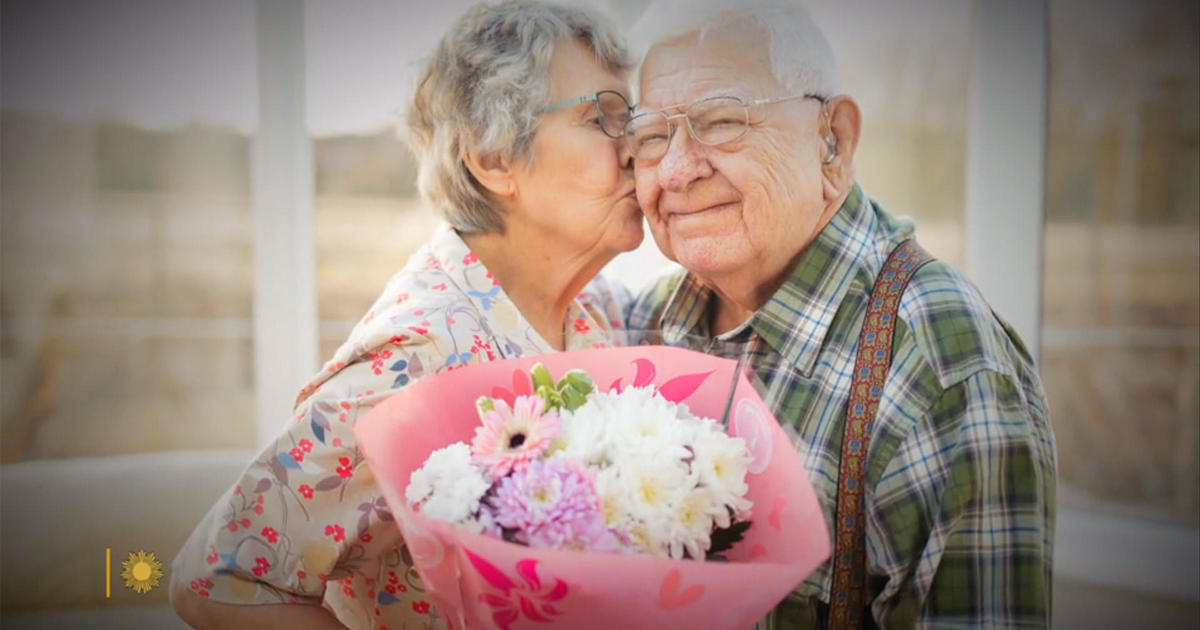CBS News
CBS News Valentine’s Day poll: Most Americans think they are romantic, but what is it that makes them so?

Are you romantic? Most Americans think they are, at least somewhat. And when it comes to what they think makes someone romantic, it’s some of the little everyday things that people can do that come to mind first.
And how romantic people think they are is a good indicator of how likely they are to celebrate Valentine’s Day.
But what makes someone romantic? It’s the everyday things that are important indicators. When asked, the top qualities given are being loyal and reliable, being a good listener, and doing considerate things regularly. In contrast, only half say it’s very important to do unexpected and spontaneous romantic things.
Does marriage change romance? Not necessarily, since three in four married Americans think of themselves as at least somewhat romantic. Still, it’s possible that romance may cool a bit for some married couples: those in a committed romantic relationship who are not married are nearly twice as likely as those who are married to consider themselves as “very romantic.”
Not every couple sees eye to eye on this. More than a third think they’re more romantic than their significant other, while less than a quarter think they are less so.
Still, overall, men tend to think of themselves as romantic in the same proportion as women do. And while the percentage of Americans who say they are “very” romantic does decline with age, even adults 65 and older largely think of themselves as at least somewhat romantic.
Celebrating Valentine’s Day
Not all Americans will be celebrating Valentine’s Day, but most who have a romantic partner will be. Sixty-eight percent of Americans who are in a committed romantic relationship plan to celebrate the holiday, compared to a third who are not.
Overall, half of Americans plan to celebrate Valentine’s Day.
How romantic one thinks of themselves as has something to do with whether or not they’ll celebrate Valentine’s Day: Most who think of themselves as romantic will be celebrating, while most who don’t will not.
Not surprisingly, the main reason for not celebrating Valentine’s Day is not having someone to celebrate it with, but those in committed romantic relationships have different reasons. Many feel it’s too commercial, or that it’s just not something they do. For many, the expense is also an issue. Those earning under $50,000 a year who are in a relationship cite the cost as their top reason.
But for those Americans who will celebrate the holiday, many go the traditional route, commercial or not. The top answers chosen were giving or receiving flowers or candy, going out to eat and giving or receiving cards.
This CBS News/YouGov survey was conducted with a nationally representative sample of 1,791 U.S. adult residents interviewed between January 29-February 2, 2024. The sample was weighted according to gender, age, race, and education based on the U.S. Census American Community Survey and Current Population Survey, as well as past vote. The margin of error is ±3.1 points.
CBS News
U.S. military suicides rose in 2023, persisting despite prevention efforts

Suicides among military service members rose in 2023 continuing a gradual rise in suicides among active-duty forces, persisting despite prevention efforts.
The Defense Department’s annual report on suicides in the military released Thursday said suicides among active-duty military rose from 331 in 2022 to 363 in 2023.
“Admittedly yes, that long-term trend is gradually increasing,” Dr. Timothy Hoyt, Deputy Director of the Office of Force Resiliency at the Defense Department told reporters on a call.
The suicide rate has grown from 17 per 100,000 active duty service members in 2011 to 26 in 2023, according to data released in the annual report for 2023, although the rate decreased for one year from 2020-2021.
Active duty service members who died by suicide in 2023 were largely enlisted males under the age of 30, accounting for 61% of suicides. The most common method of suicide was firearms, at 65%, followed by hanging or asphyxiation, at 28%.
Defense officials said the suicide rates were similar to rates across the U.S. population between 2011 and 2022.
“We are not immune to the factors that drive suicide throughout the U.S., and our service members face, in addition to those, a number of unique military challenges,” Hoyt said.
He added recommendations from the Suicide Prevention Response and Independent Review Committee have given a “mechanism by which we can address as many of those potential risks as possible and make investments in those spaces.”
The Pentagon set up the review committee to provide recommendations to reduce suicide deaths in the military. Last year the committee made a series of recommendations, including broadly improving the delivery of mental health care, addressing stigma and other barriers to care and revising suicide prevention training.
Defense Secretary Lloyd Austin who established the review committee mandated by Congress in 2022 said in a statement that the annual report’s findings “urgently demonstrate the need for the Department to redouble its work in the complex fields of suicide prevention and postvention.” Austin said the Defense Department completed 20 of the 83 committee’s recommendations.
The Pentagon expects to spend about $250 million on suicide prevention in fiscal year 2025, the largest amount of funds the Defense Department has ever invested, Hoyt told reporters.
“A lot of the time where we’ve done initiatives during the past two decades, there’s been insufficient investment in making sure that those have staying power, that we’ve got a long-term implementation of those programs,” Hoyt said.
The total number of suicides across the force, including both active duty and reserve, was 523 in 2023 compared to 493 in 2022.
Suicide is one of the leading causes of death for veterans as well. According to the most recent report from the Department of Veterans Affairs, the suicide rate for 2021 was 33.9 per 100,000, up from 32.6 per 100,000 in 2020.
If you or someone you know is in emotional distress or suicidal crisis, call the National Suicide Prevention Hotline at 988 or 1-800-273-TALK (8255).
For more information about mental health care resources and support, The National Alliance on Mental Illness (NAMI) HelpLine can be reached Monday through Friday, 10 a.m.–6 p.m. ET, at 1-800-950-NAMI (6264) or email info@nami.org.
CBS News
On the front lines with firefighters as they battle wildfires in New Jersey

Watch CBS News
Be the first to know
Get browser notifications for breaking news, live events, and exclusive reporting.
CBS News
Trump’s pick of Matt Gaetz for attorney general draws criticism

Watch CBS News
Be the first to know
Get browser notifications for breaking news, live events, and exclusive reporting.



